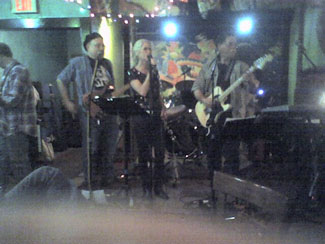Today the Wesleyan Student Assembly sent out a final announcement before students start coming back to campus to begin their two-week quarantine and start classes. They forcefully and eloquently describe what’s at stake as we try to keep our campus safe during the pandemic. I’m grateful for the permission to cross-post.
Although what has happened at some universities across the country over the past week may be unnerving, we believe that Wesleyan is well-equipped for a safe residential experience on campus this Fall. Faculty and staff alike have been working extremely hard to make it possible. It is now up to us, the student body, to step up and start to do our part, too, as we begin to return to campus starting tomorrow.
The COVID 101 Moodle and the COVID Community Agreement have clearly outlined the set of guidelines and expectations for residential students this semester. Though they may be restrictive and inevitably make Fall 2020 an abnormal semester, they are necessary to maintain a safe campus for anyone who needs it. If you find those guidelines too restrictive and personally impossible to adhere to, we urge you to rethink your decision to return to campus this Fall. Having the ability to return to campus is a privilege within itself. For many students, Wesleyan has become a home and a safe haven. For many others, an on-campus experience and the community it brings, even at a 6 feet distance and with a mask on, is critical for their academic success. That is why Wesleyan staff have gone to great lengths and pains to set up appropriate health and safety protocols, reconfigure essential services in accordance to COVID guidelines, and invest in a robust testing technology.
However, frequent testing, as Prof. Cohan and Prof. Johnston have emphasized in their COVID101 lecture, will not be enough for us to think that we are automatically in a safe bubble. So make no mistake. This bubble does not magically build itself. It takes a village to build and takes even more to preserve, but it only takes one person, possibly with one urging idea to have one party with friends, however small, whether on campus or off campus, for that bubble to burst entirely and completely. So let’s not risk it. Too many people have worked too hard to set us up for success, and too much deliberation and planning have gone into all of your decision to return to campus already; too much is at stake for any of us to take such risks and be sent home 2 weeks into the semester. It is always better to err on the side of caution instead of being left with some residue of guilt. So keep your mask on even though it seems unbearably hot when you are outside of your residence, and make sure it covers both your mouth and your nose! Remember that it is 6 feet and not 5 feet and a half apart. This arrival season, show your love and care for friends, faculty and staff who you have dearly missed not by the kisses and the hugs, but by wearing a mask and keeping your distance. As Dr. McLarney has said in his last email to the campus on Wednesday, you may not be able to control what others do, but you can do your part. You can lead by example. You can help reinforce and strengthen those new norms of health guidelines on campus. It is possible.
Our return to campus this Fall will be abnormal, but it can also be phenomenal. A residential experience this Fall means that many students will have access to secure housing and several other important on-campus resources to fulfill their academic endeavor. Many people will get to keep their jobs. It will also mean Middletown can be lively again. Indeed, according to Mayor Ben Florsheim in a conversation between the WSA leadership and Middletown officials last month, local businesses have been longing for Wesleyan students to come and “bring the business back to town” since we left last March. Many will benefit from our students’ presence and care for the community at large. But please remember that those benefits can only be reaped if we all adhere to guidelines and practice our individual and collective responsibility that goes hand in hand together. In returning to campus this Fall, we all sign a community agreement. It is not a matter of legality or liability. Rather, it is a matter of life and death. It is a new social contract built upon the long-standing values of community and trust that should transcend all political, cultural or personal boundaries. It is a social contract that simply cannot afford a single rebel. We trust that cardinals care, because this is our community. This is our home. So let’s do our best to protect it.
Welcome back home, Cardinals!
Anna Nguyen, Student Life Committee Chair
Ben Garfield, Academic Affairs Committee Chair
Felicia Soderberg, President



